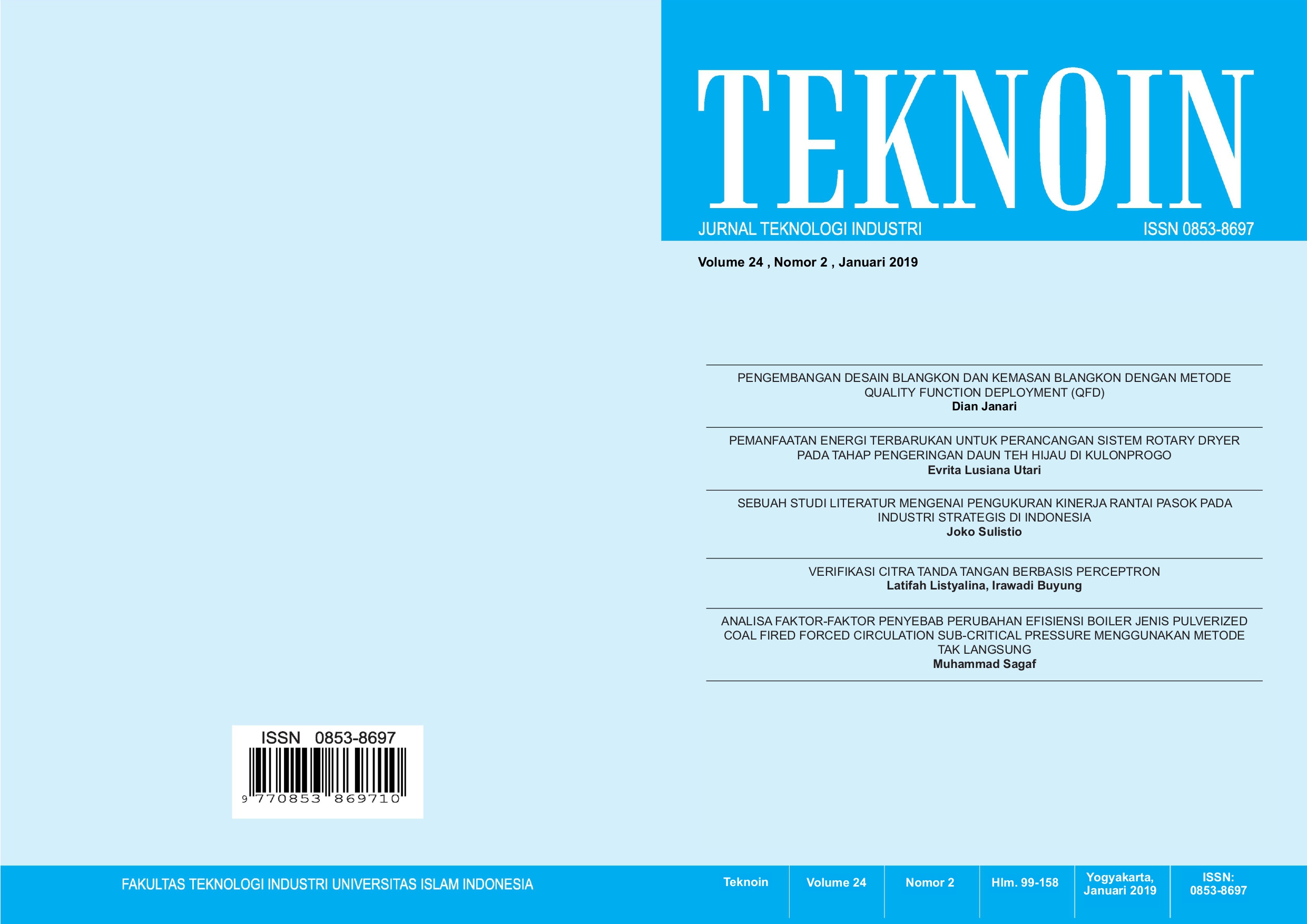Main Article Content
Abstract
The Boiler is one of the equipment in the steam power plant which their reliability will be decreased by annually. Boiler degradation can be observed by the decreasing value of boiler efficiency every year. To maintain the efficiency it is necessary to know the main cause of degradation factors. PLTU Tanjung Jati B Unit 3 and 4 using pulverized coal fired boilers with forced circulation and sub-critical pressure type, the steam capacity is 2x2280 tons / hour to generate electrical energy of 2x660 MW.
Boiler Efficiency is calculated by indirect method with uncertainty rate (0.4% -0.8%) in every boiler heat loss. The highest efficiency of boiler Unit 3 was achieved during Commercial Operation Date (COD) in 2011 with 89.71%, while Unit 4 achieved on the 2nd test performance in 2013 with 89.61%. The lowest boiler efficiency value for Unit 3 on the 9th performance test in 2016 with 88,36%, and Unit 4 was on 9th performance test in 2016 with to 87,48%. The degradation of Unit 3 boiler efficiency during 6 years is 1.35% or 0.225% per year. While the degradation of Unit 4 boiler efficiency during 6 years is 2.13% or 0.355% per year. The major of boiler heat loss were from exhaust gas (L1), moisture content of burning hydrogen in fuel (L3) and heat loss due to the moisture in the fuel (L2). The main factors losses in boiler is caused by ash deposits in the economizer area, it make inhibition of heat transfer from (flue gas) to economizer tube, the others from the use of three types of coal which have different characteristics.
Article Details
Authors who publish with this journal agree to the following terms:
- Authors retain copyright and grant the journal right of first publication with the work simultaneously licensed under a Creative Commons Attribution License that allows others to share the work with an acknowledgement of the work's authorship and initial publication in this journal.
- Authors are able to enter into separate, additional contractual arrangements for the non-exclusive distribution of the journal's published version of the work (e.g., post it to an institutional repository or publish it in a book), with an acknowledgement of its initial publication in this journal.
- Authors are permitted and encouraged to post their work online (e.g., in institutional repositories or on their website) prior to and during the submission process, as it can lead to productive exchanges, as well as earlier and greater citation of published work (See The Effect of Open Access).
